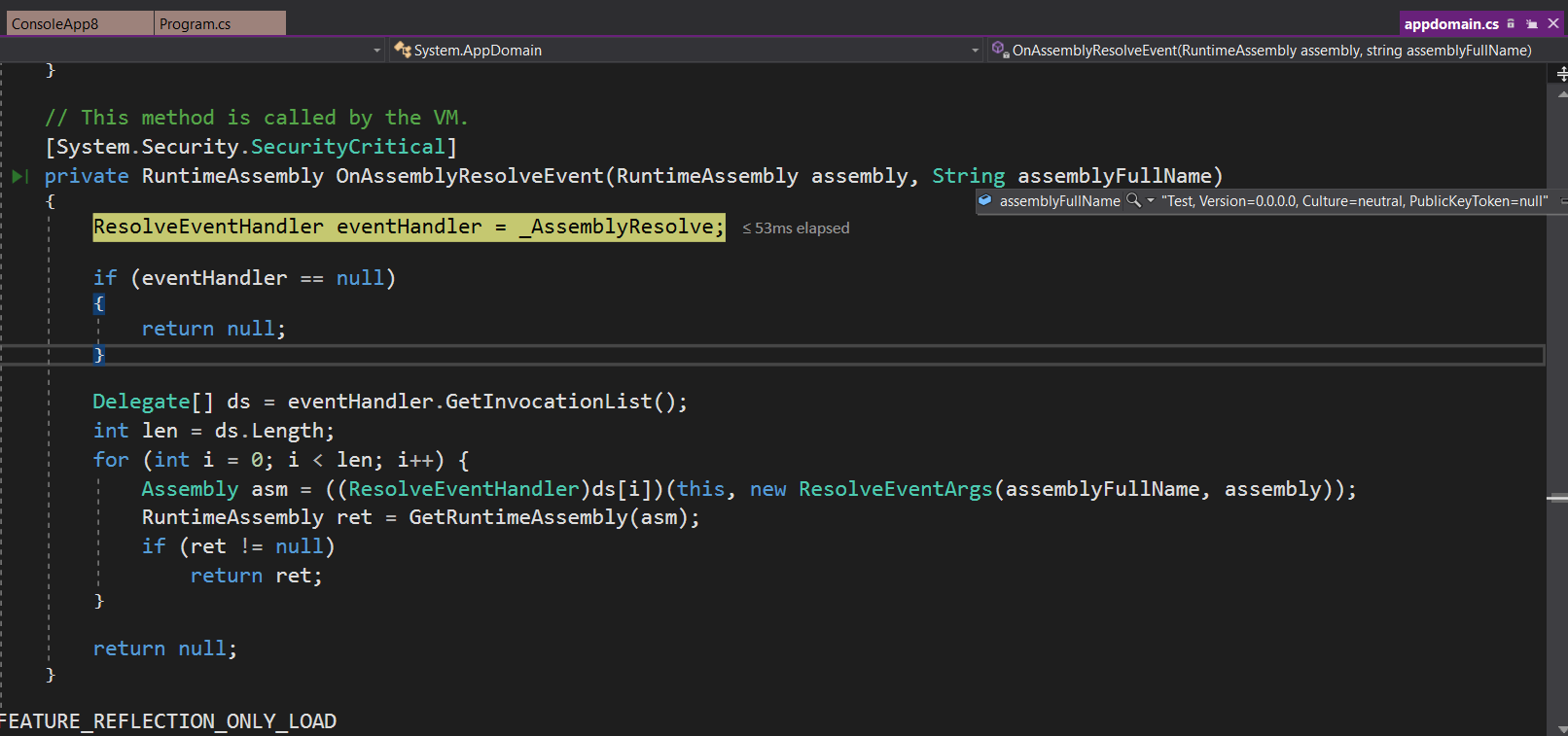I am developing a library in C# that generates runtime types using System.Reflection.Emit.TypeBuilder class and i want to generate the following class hierarchy:
[XmlInclude(typeof(Derived))]
public class Base
{
}
public class Derived : Base
{
}
I use the TypeBuilder class in the following way:
class Program
{
public static void Main(string[] args)
{
var assembly = AppDomain.CurrentDomain.DefineDynamicAssembly(new AssemblyName("Test"), AssemblyBuilderAccess.Run);
var moduleBuilder = assembly.DefineDynamicModule("Test");
var baseTypeBuilder = moduleBuilder.DefineType("Base", TypeAttributes.Public, typeof(Object));
var derivedTypeBuilder = moduleBuilder.DefineType("Derived", TypeAttributes.Public);
derivedTypeBuilder.SetParent(baseTypeBuilder);
baseTypeBuilder.SetCustomAttribute(new CustomAttributeBuilder(typeof(XmlIncludeAttribute).GetConstructor(new[] { typeof(Type) }), new[] { derivedTypeBuilder }));
var baseType = baseTypeBuilder.CreateType();
var derivedType = derivedTypeBuilder.CreateType();
var attribute = baseType.GetCustomAttribute<XmlIncludeAttribute>();
}
}
The call:
var attribute = baseType.GetCustomAttribute<XmlIncludeAttribute>();
I receive the following error:
Could not load file or assembly 'Test, Version=0.0.0.0, Culture=neutral, PublicKeyToken=null' or one of its dependencies. The system cannot find the file specified.
Any ideas are well-appreciated: how can i apply a custom attribute on a TypeBuilder for base class that refers to a TypeBuilder for a derived class?
P.S: I'm using Visual Studio 2017 (v15.7.5) and a C# Class Library (.NET Framework project template) NOT .NET Core or .NET Standard

